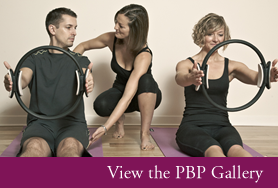Pilates takes its name from Joseph Pilates, the German-born emigrant to the UK and the USA, who devised it as a new approach to exercise and body-conditioning.
Joseph Pilates was born near Dusseldorf in 1880. He was a frail child who determined to make himself strong and healthy. He researched and practised every kind of exercise he could, ranging from classical Roman and Greek exercise regimes to body-building and gymnastics, alongside the Eastern disciplines of yoga, tai chi, martial arts and Zen meditation. He was perhaps the first influential figure to combine Western and Eastern ideas about health and physical fitness.
In 1912, he left Germany for the UK, where he became a professional boxer, an expert skier and diver, and taught self-defence to Scotland Yard detectives. On the outbreak of World War I he was interned in a POW camp in Lancashire. He used this time to start developing a new approach to exercise and body-conditioning; the start of what is known today as Pilates. Returning to Germany after World War I, Pilates worked with pioneers of movement technique such as Rudolph Laban, who created the basic system of dance notation still used today.
In 1923, Joseph Pilates moved to America, where he opened his first studio in New York, along with Clara, his wife and assistant. His new method was an instant hit, particularly among dancers such as Martha Graham and George Balanchine. Gradually, a wider audience got to hear of it. Joseph Pilates called his technique Controlology; only later did it become known by his surname.
The Pilates Method did not return to the UK until 1970, when it was brought back by Alan Herdman. However, Pilates remained essentially unknown to the general public, until 1995 with the advent of Body Control Pilates.
Pilates today is taught in several forms, directly reflecting the legacy of Joseph Pilates. He did not lay down a formal training programme, with the result that, on his death, his 'disciples' continued teaching by adding their own variations to the core principles and philosophy. This flexibility in approach is one of the reasons why Pilates has been so successful.

